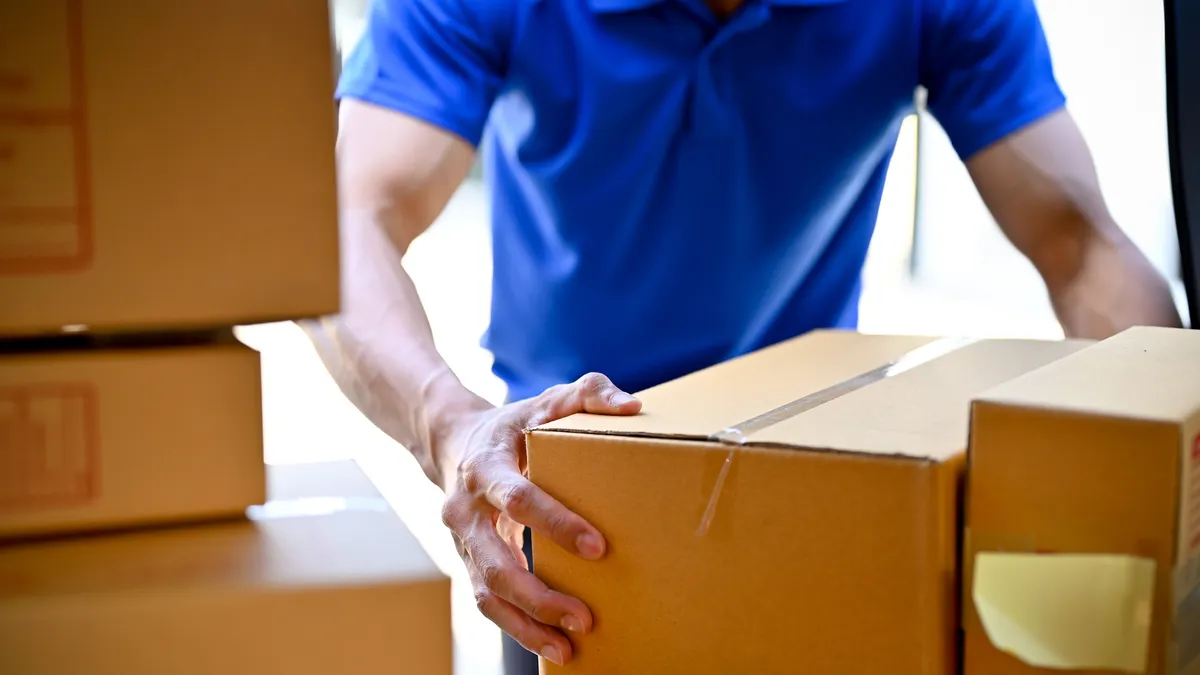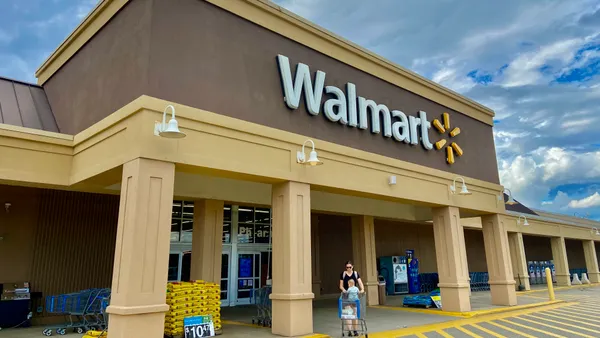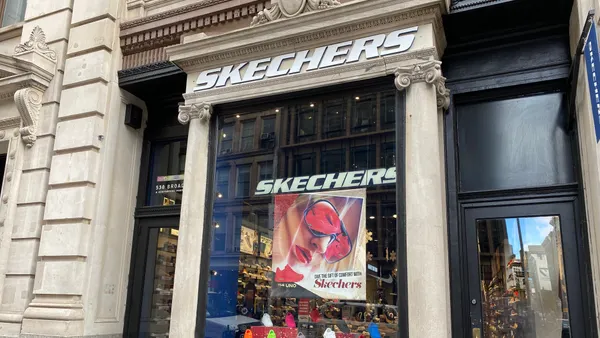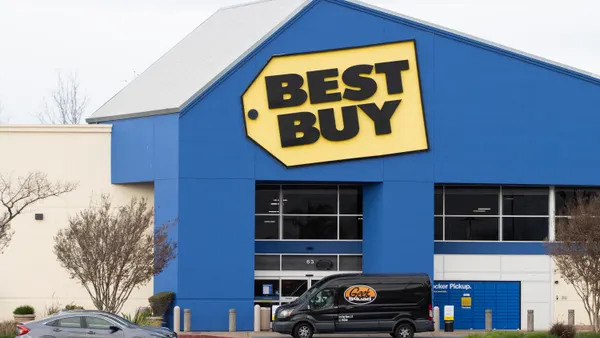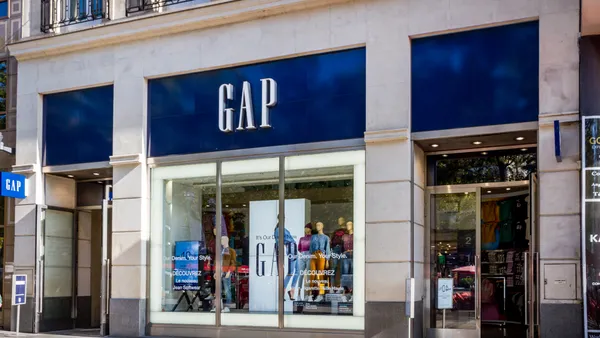Dive Brief:
- Amid the predicted e-commerce sales growth this holiday season, consumers could generate as much as $82.1 billion worth of returns, according to a new report from CBRE and Optoro.
- Nearly nine in ten retailers have updated their return policies this year, according to the report. Nearly half (44%) of retailers increased their return and restocking fees, and four in 10 said they introduced or added more return drop-off locations.
- Optoro estimates that the cost of returns has spiked by 50%, or $149 billion, compared to 2018. The cost of returning a purchase averages 27% of the purchase price, the reverse logistics firm found, and could erase as much as half of the sales margin of a product.
Dive Insight:
The new report from Optoro and CBRE calls attention to the waste generated by returns: Returned inventory amounts to 9.5 billion pounds of landfill waste annually, the firms said. The rise of e-commerce, which the National Retail Federation predicts could reach between $273.7 billion and $278.8 billion this holiday season, has led to increased returns.
“Reverse logistics have a huge impact on retailers’ bottom lines, and the most effective retailers have built their supply chains to effectively handle the reverse flow of merchandise,” Joe Dunlap, managing director of supply chain advisory at CBRE, said in a statement. “Smart return policies, enlisting help in third party merchandise handlers and making the returns process easy for customers all help retailers increase their rate of recovery on returns.”
After spending about $97 billion online during the three weeks after Cyber Week last year, Salesforce estimated shoppers would return about $1.4 billion in holiday merchandise in 2022, up 57% from 2021. The NRF in December last year estimated consumers would return more than $816 billion worth of items over the course of 2022.
Amid the rising costs of returns, retailers and brands, including H&M, Amazon and South Moon Under, have changed their returns policies this year to add fees to certain returns or otherwise discourage returns. Meanwhile, UPS announced plans in October to buy Happy Returns from the payment giant PayPal to support its returns operations.


